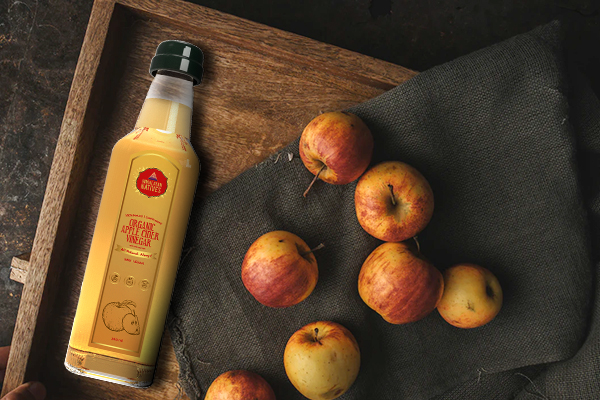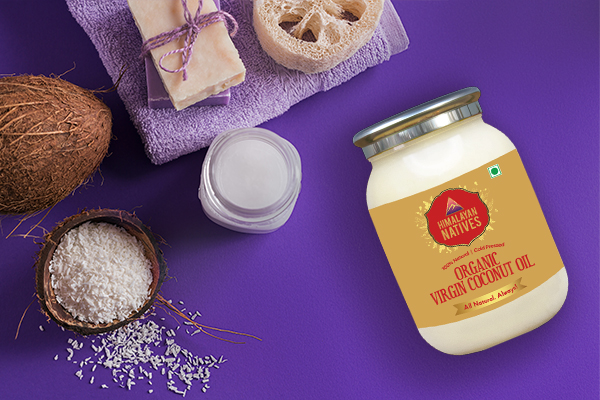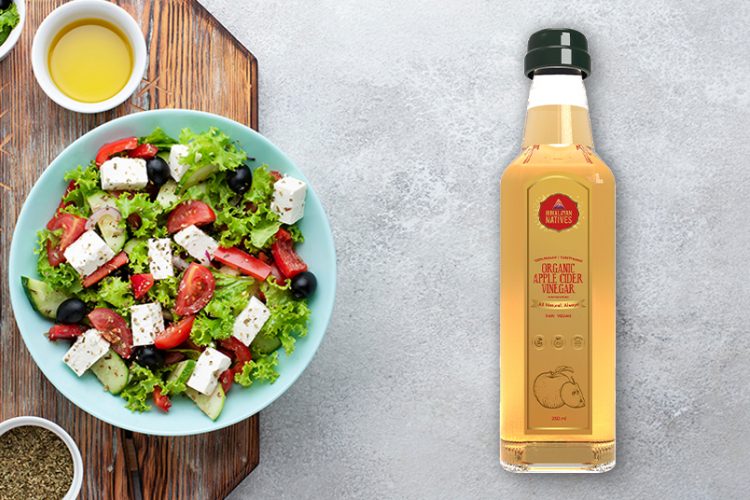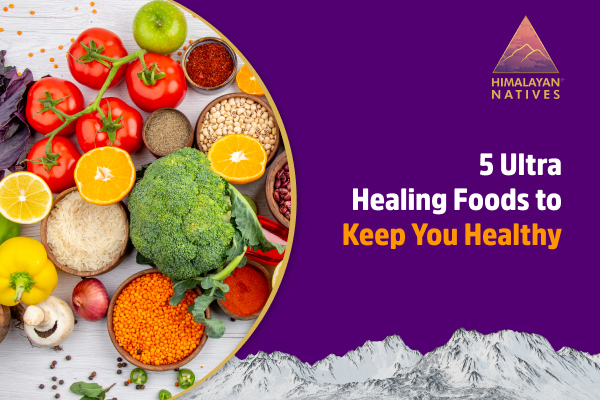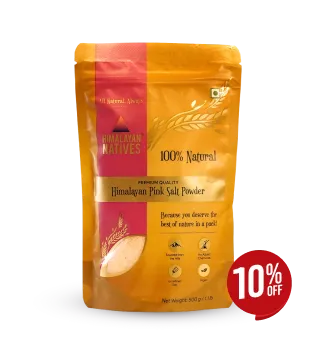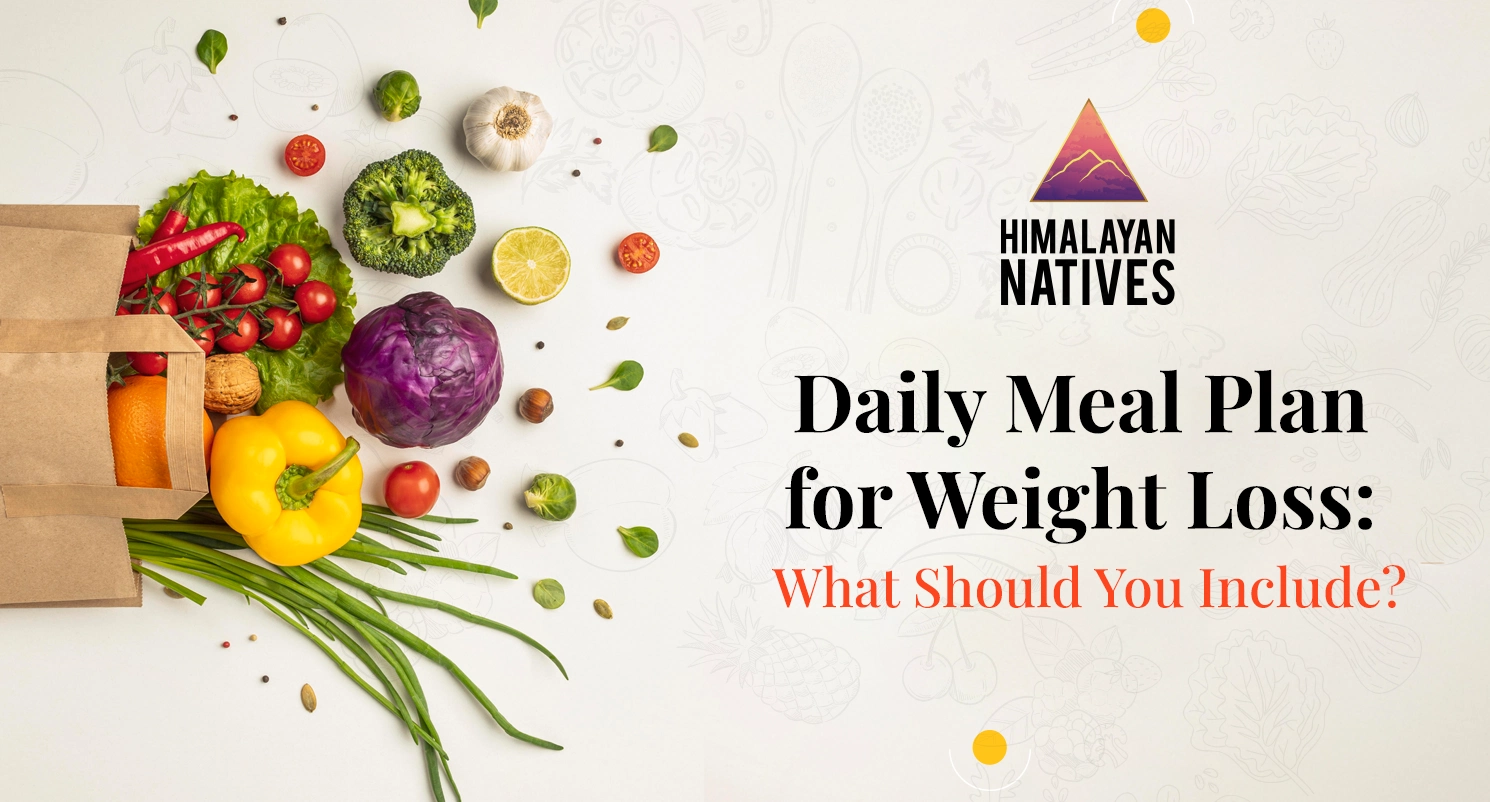
How many times have we sat on the internet and searched ‘best weight loss program’ or "the fastest weight loss diet"? N number of times, haven’t we?
Let us ask you one more question. How many times have we started these programs and given up in the first seven days?
The number of people agreeing to the above question is going to be massive. This is the reason why we bring you the simplest meal preparations and lists that you can cook in no time and be more realistic towards your goals.
Prioritizing yourself - your mind, your body, and your growth—will never be considered selfish. It is the true act of self-love and self-acceptance.
First Step Towards Weight Loss:
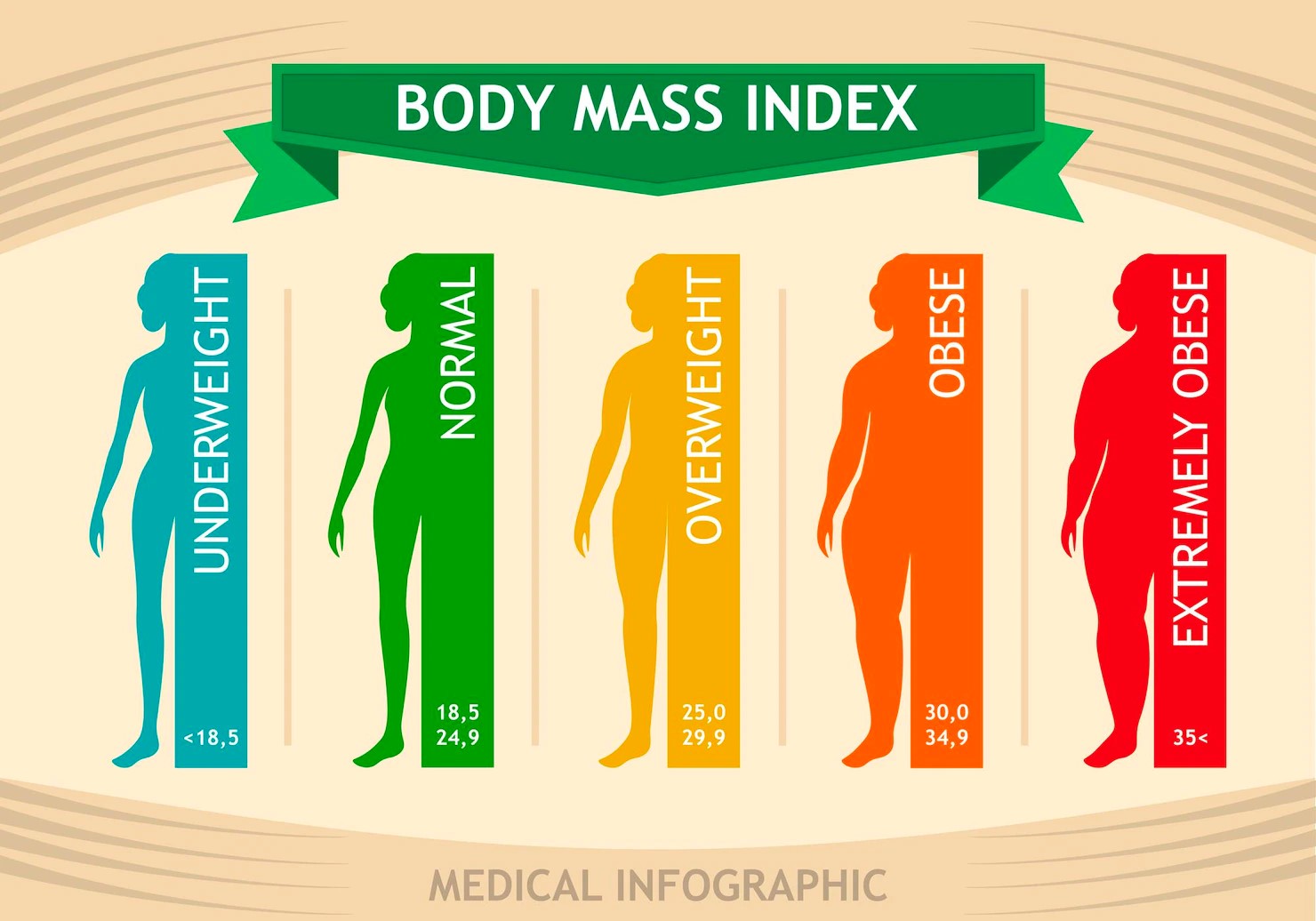
Your meal plans will be determined by the following:
Your weight right now vs your weight goal
The medications and conditions of your body (if you suffer from any)
The regularity of your physical activities
The time period to achieve the weight goal
Specific dietary meals such as vegetarian, non-vegetarian, and egalitarians.
The time in hand for preparing meals
The knowledge of cooking intricate meals
Let’s first look at the ideal body weight according to height and age. I.e the BMI
BMI = weight/height
Calculate your BMI by dividing the weight of your body by your height, and check where you stand in this chart. If you are someone who falls in the third, fourth, or fifth category, let’s keep reading.
5 Healthy Foods to include in your diet plan
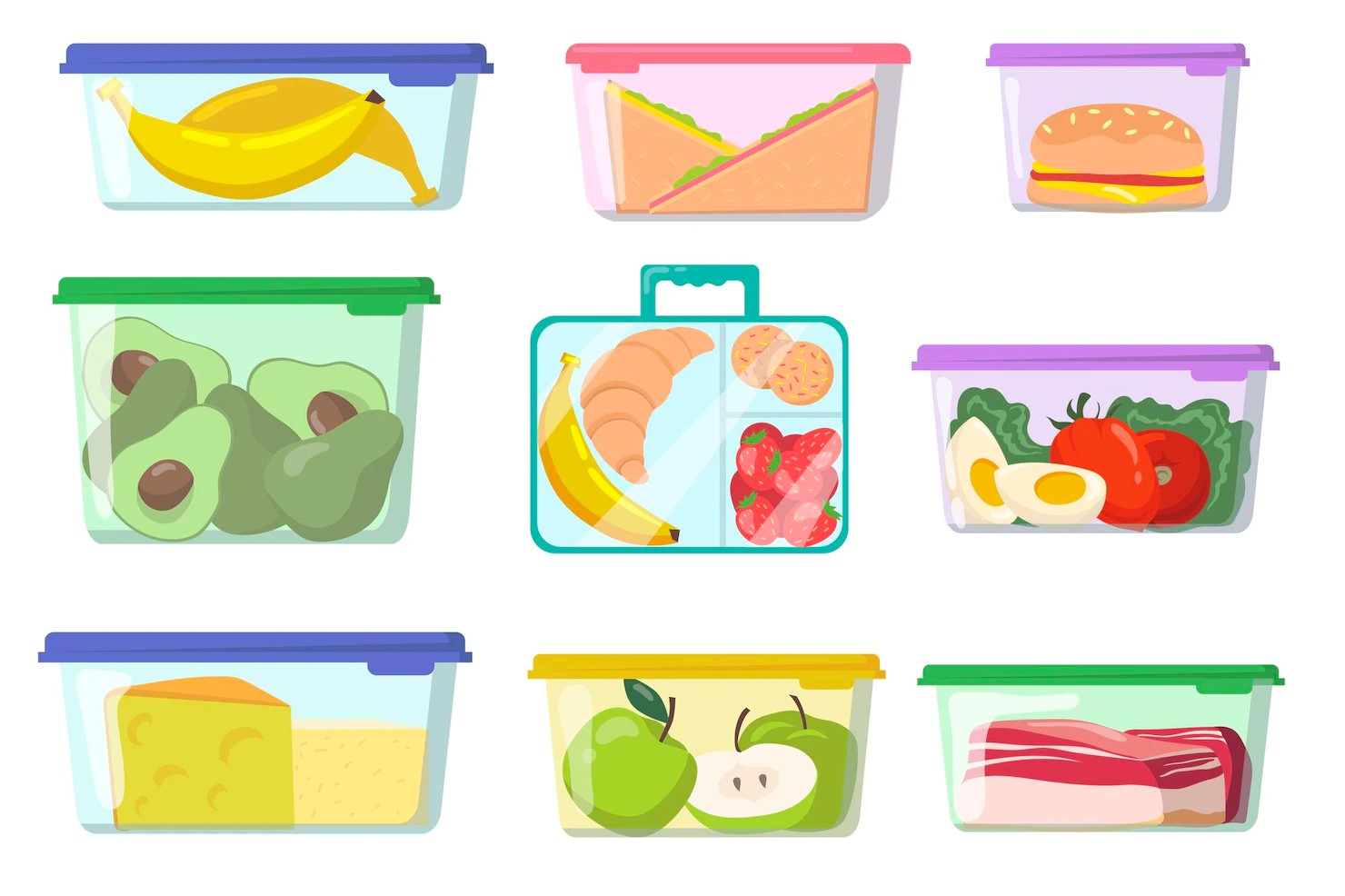
Carbohydrates: Many people wonder why are carbs (carbohydrates) part of a diet plan at all when they are the reason why were are obese in the first place.
So let’s resolve this today. Carbohydrates are the most important nutrients we need to consume, to be able to do even the smallest physical activities, like picking up a pencil. Carbohydrates are sugar molecules that give our bodies the energy they need. They provide the body with glucose, which is then converted into the energy needed for body activities.
What needs more attention is the type of carbohydrates we are consuming during the weight loss process. It is because some sources of carbohydrates are more beneficial than others. For eg: Carbohydrates in fruits, whole grains, and vegetables are better than the ones found in bread, sauce, and processed foods.
Fats: How can someone on a weight loss journey be consuming fat? Well, we tend to forget that the correct amount of essential fats help us with energy and absorption of some vital vitamins and minerals, balance hormones, and create Omega 3 and Omega 6, which the body cannot produce on its own. Fats come in 4 categories:
Monounsaturated fats: pumpkin seeds, nuts, avocado, peanuts
Polyunsaturated fats: soybean, flax seeds, walnuts
Trans fat: refrigerated pizza, cakes, fried food
Saturated fats: butter, biscuits, cheese
The former two are healthy fats while the latter two are unhealthy fats. The latter two can lead to heart problems such as stroke or a heart attack.
Fibre: A lot of studies have proven in the past that increasing the sources of fibre in your diet helps you lose weight faster. Fibre helps your body digest food products better by breaking them down into smaller particulars and keeping your gut clean. The cleaner and better the bowel movement, the better your digestive system is. This helps you lose weight faster and better.
Fibre rich foods keep you fuller for longer, which is why you don’t eat unnecessarily.
Protein: A protein rich diet is an essential part of your diet plan as it helps you lose those extra calories instead of the fats that give you energy. Vegetarians find it incredibly difficult to fulfil their RDI (Recommended Dietary Intake) as non-vegetarian foods are incredibly high in protein. That absolutely doesn’t mean you cannot make your protein intake high by being a vegetarian. Watch our Instagram post to know the top 5 protein rich vegetarian food items.
Vitamins & Minerals: Essential vitamins and minerals help the body in 100 different ways. We must be careful not to be overdosing on too little or too much of them. Vitamins and minerals help our body strengthen bones, heal wounds, give energy, and many other benefits. Consume the following foods in order to gain the right amount of vitamins and minerals required.
Fruits and Vegetables
Whole Grains
Cereals
Now that we have discussed the kinds of food that need to be incorporated into our daily meal plan, let’s have a look at the proportion in which the above mentioned foods should be consumed.
Your daily calorie intake should be: 1200-1500 calories according to your weight goal
Carbohydrates intake: It should be 60% - 65% of your daily calorie intake
Protein intake: 0.8 gm per[1] [2] [3] kg (body weight)
Fats intake: 20% - 35% of your daily calorie intake
Vitamins and minerals intake: 900 micrograms for men, 700 micrograms for women
7 Days Daily Vegetarian Meal Plan for Weight Loss
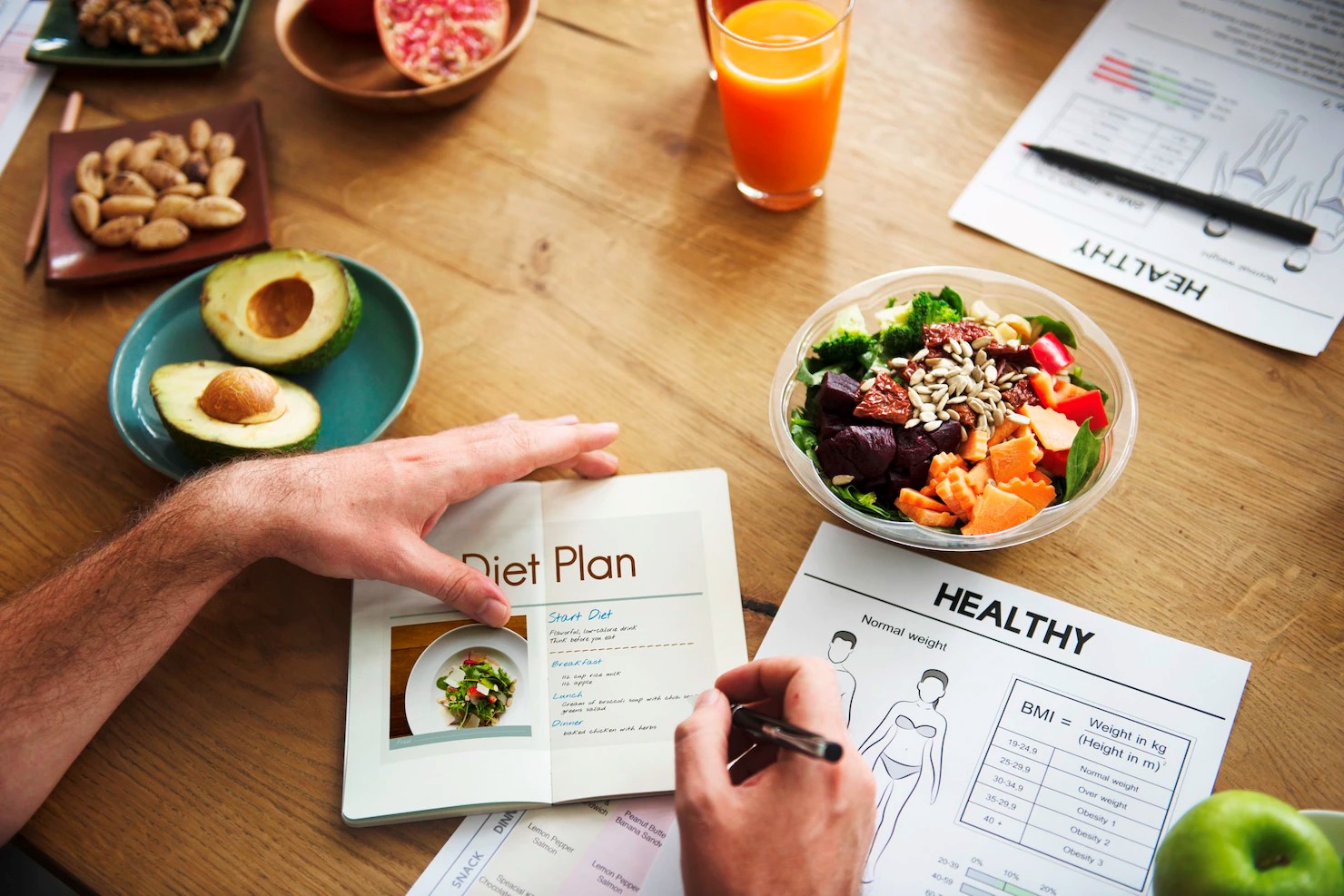
Let’s have a look at the balanced diet food list to follow through:
Monday:
Morning (7 am): Drink a glass of water with overnight soaked chia seeds on an empty stomach.
Breakfast (9 am): 2 vegetables besan chilla with fresh coriander chutney
Brunch (11 am): 1 seasonal fruit
Lunch (1 pm): salad, 1 chapati, green vegetables, 1 small cup rice, 1 bowl of raita/curd
Tea time (4:30 pm): Green tea and royal trail mix
Dinner (7 pm): Quinoa salad
Tuesday:
Morning (7 am): Drink a glass of warm water with lemon and honey in it.
Breakfast (9 am): a bowl of poha and dry fruits
Brunch (11 am): 1 seasonal fruit
Lunch (1 pm): Crunchy brussel sprouts salad with buttermilk
Tea time (4:30 pm): Green tea with oat cookies
Dinner (7 pm): whole wheat bread hung curd sandwich with coriander chutney
Wednesday:
Morning (7 am): Drink 1 glass of cucumber and mint water
Breakfast (9 am): 1 bowl of Upma with skimmed milk
Brunch (11 am): 1 seasonal fruit
Lunch (1 pm): 2 Bajre ki roti with palak ki sabzi
Tea time (4:30 pm): Green tea with dry fruits & nuts
Dinner (7 pm): paneer sandwich with green garlic chutney
Thursday:
Morning (7 am): 1 glass of warm cinnamon water
Breakfast (9 am): 2 pieces of idli with chutney and sambhar
Brunch (11 am): 1 seasonal fruit/coconut water
Lunch (1 pm): 1 bowl of vegetable porridge
Tea time (4:30 pm): Green tea with chana or badam
Dinner (7 pm): 2 Rotis with green vegetables and salad
Friday:
Morning (7 am): 1 glass of warm water
Breakfast (9 am): 1 bowl of yoghurt mixed with berries, fruits, topped with sunflower seeds
Brunch (11 am): 1 seasonal fruit
Lunch (1 pm): vegetable salad
Tea time (4:30 pm): black coffee with 1 tsp ghee
Dinner (7 pm): 1 bowl of basil and tomato soup with sandwich
Saturday:
Morning (7 am): 1 cup green tea
Breakfast (9 am): Oats with seasonal fruit, pumpkin seeds, and any other topping of preference
Brunch (11 am): 1 seasonal fruit
Lunch (1 pm): Jeera rice with lentils
Tea time (4:30 pm): black coffee without sugar with oat cookies
Dinner (7 pm): Boiled vegetable soup
Sunday:
Morning (7 am): 1 glass of warm water
Breakfast (9 am): Multigrain and vegetable paratha with curd and chutney
Brunch (11 am): 1 seasonal fruit
Lunch (1 pm): Frankie with roti and vegetables
Tea time (4:30 pm): Black coffee with 1 tsp ghee
Dinner (7 pm): Quinoa pulao or any other Quinoa recipes.
Read our blog All about Quinoa to learn in depth about this grain and its delicious, healthy recipes.
There are multiple healthy choices of recipes that you include in your daily meal plan for weight loss. You can do permutations and combinations according to your own preferences. Just remember to prepare a diet chart that includes all 5 types of food and portions according to your BMI.
Always know, it is easy to overcome your physical obstacles if you make your mind strong. It is not overnight magic but rather the hard work and determination of weeks, months, and years.
 HELPFUL0 people found it helpful
HELPFUL0 people found it helpful
Related Blogs
Subscribe to Our Blogs
and never miss on the latest update!








